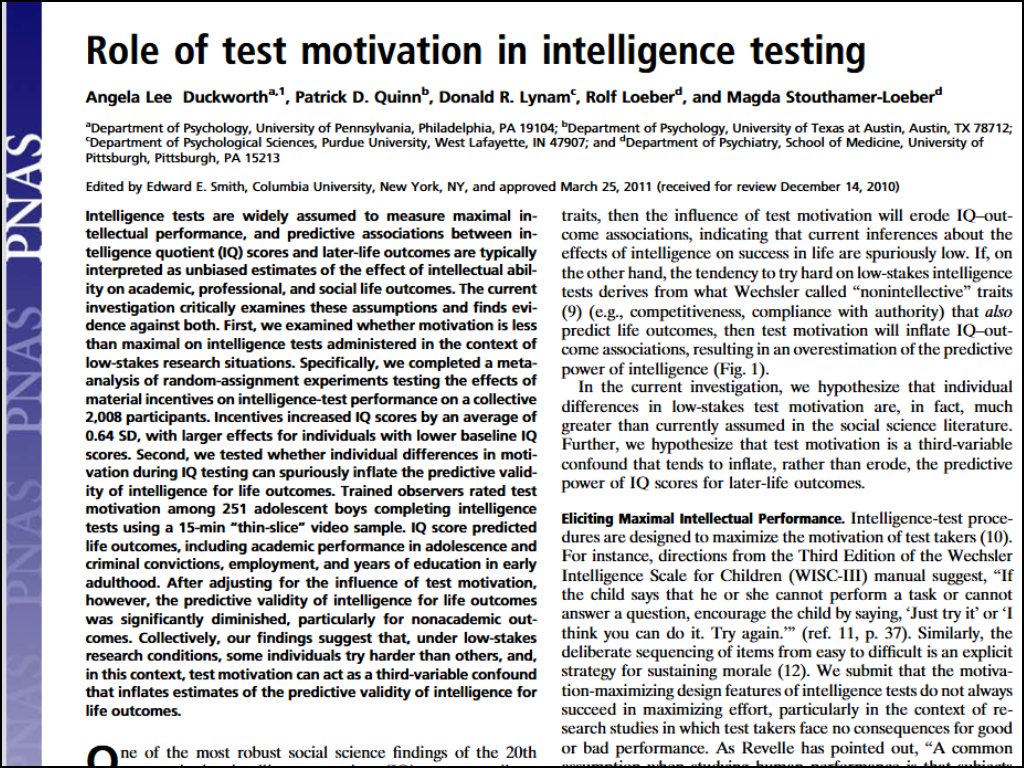The authors of a paper on how incentives influence IQ have requested an expression of concern after a recent retraction altered the results of their study.
On January 20, we reported that a paper by embattled researcher and child psychologist Stephen Breuning was retracted decades after an investigation found evidence of scientific misconduct. Breuning’s papers came into question following a 1987 report from the National Institute of Mental Health (NIMH), which found he “knowingly, willfully, and repeatedly” engaged in research misconduct and fabricated results in 10 NIMH funded articles.
Since then, six of Breuning’s papers have been retracted. The latest retracted article, originally published in 1978, was not part of the investigation but came about “due to concerns about the integrity of the data reported and other issues identified within the NIMH Final Report that clearly established a pattern of ongoing scientific misconduct,” the retraction notice read.
Data from that paper were included in a 2011 meta-analysis, “Role of test motivation in intelligence testing,” published in PNAS, which compared IQ scores under incentivized and standard testing conditions. An expression of concern, published February 20 in PNAS, stated that when the authors removed the retracted paper’s data and re-analyzed the remaining 18 experiments, they found the results for this component of their work “changed substantially,” the notice read. “At the request of the authors, we are issuing this expression of concern and will update readers as more information becomes available.”
The expression was requested by three of the authors, Angela Lee Duckworth, Patrick D. Quinn, and Donald R. Lynam. Duckworth did not respond to a request for comment.
Research psychologist Russell Warne has been studying Breuning’s work, and, as we reported in our earlier story, had reached out to Duckworth and PNAS about the inclusion of Breuning’s data. “It is unfortunate that Dr. Duckworth, her coauthors, the editors, and the PNAS readers were victimized by Stephen Breuning’s fraud,” Warne told Retraction Watch in an email. “But a wrong is now being righted, and I applaud the courage that Dr. Duckworth and the PNAS editors have shown in dealing with this issue.”
Like Retraction Watch? You can make a tax-deductible contribution to support our work, follow us on X or Bluesky, like us on Facebook, follow us on LinkedIn, add us to your RSS reader, or subscribe to our daily digest. If you find a retraction that’s not in our database, you can let us know here. For comments or feedback, email us at [email protected].
